Asia & Oceania
Is Manny Pacquiao Still a Leading Man, or Entering His Character Actor Phase?

In some respects, future Hall of Fame boxers on a career downturn are like leading ladies who are obliged to make the transition to character roles once the aging process inevitably detracts from their drop-dead-gorgeous looks.
Probably no one has thought to compare the Manny Pacquiao of 2017 to the late Elizabeth Taylor, but upon further examination there might be certain parallels. The Taylor who starred in Giant (1956) and Cat on a Hot Tin Roof (1958), with her violet eyes, creamy complexion and hour-glass figure, was arguably the most stunningly attractive woman ever to appear on the silver screen. She was, respectively, 24 and 26 when those films were released. By 1966, when she was still just 34, La Liz was noticeably plumper and played the role of a frowsy, tart-tongued professor’s wife so well that she won her second Academy Award as Best Actress for Who’s Afraid of Virginia Woolf? Taylor was still a marvelous, mesmerizing performer, but it had to come as a shock to audiences that even her ravishing beauty could not endure indefinitely.
The then-22-year-old Pacquiao first burst into wide prominence on June 23, 2001, when, in his U.S. debut, the little Filipino southpaw was spectacular in dethroning IBF super bantamweight champion Lehlo Ledwaba of South Africa via sixth-round stoppage at Las Vegas’ MGM Grand, on the undercard of a show headlined by Oscar De La Hoya’s 12-round unanimous decision over WBC super welterweight titlist Javier Castillejo. Everyone who saw the previously unknown (well, at least in America) Pacquiao take apart Ledwaba that night had an idea that they had witnessed the launch of something truly special. In that instance, initial impressions proved correct; Pacquiao evolved into a global icon who over the next 16 years would accumulate 11 world championships in a record eight weight classes, capturing Fighter of the Year honors from the Boxing Writers Association of America three times (2006, 2008 and 2009), a hat trick only accomplished by such other indisputably great fighters as Muhammad Ali, Joe Frazier, Sugar Ray Leonard, Evander Holyfield and Floyd Mayweather Jr.
And now?
Well, the Pacquiao (59-6-2, 38 KOs) who defends his WBO welterweight belt against Jeff “The Hornet” Horn (16-0-1, 11 KOs) Saturday night (U.S. time, on ESPN) and Sunday afternoon (local time) in Horn’s hometown of Brisbane, Australia, will be fighting for much more than the retention of his most recent world title. Now 38, with at least a couple of laugh lines crinkling his once-unmarked face and flecks of gray in his formerly jet-black hair, “Pac Man” will give evidence, one way or another, as to his status in the here and now. Is he still a giant of his demanding profession, a quick-twitch, lovely to behold cat on a hot tin roof? Or is he continuing his slow but steady slide into Virginia Woolf territory, the onetime superstar who must soon, if not this weekend, acknowledge the fight game’s natural laws of diminishing returns?
It speaks well of Pacquiao’s reputation as a legend of the ring that a crowd of 55,000-plus is expected to jam Suncorp Stadium and see if he has held on to enough of his onetime brilliance to merit his 6½-1 favorite’s position over the relatively inexperienced Horn, who no doubt would be a much longer longshot were he going against the Pacquiao who battered De La Hoya and Ricky Hatton into submission during his glorious prime. But that Pacquiao has been on lengthy hiatus, not scoring a knockout or victory inside the distance since he stopped Miguel Cotto in the 12th and final round of their fight on Nov. 14, 2009. The KO drought has now extended to 12 bouts over seven years, 5½ months, during which time the elected Senator in his homeland of the Philippines has posted a 9-3 record, one of the defeats on an emphatic, one-punch takeout in the sixth round of his fourth matchup with Juan Manuel Marquez on Dec. 8, 2012.
Pacquiao also was handily outpointed by Mayweather in their May 2, 2015, megafight, which generated record-shattering financial returns (4.4 million pay-per-view subscriptions and nearly $600 million in gross revenues), a bout which earned Mayweather a staggering $220 million and Pacquiao a slightly smaller sultan’s ransom of $100 million-plus.
If the purses for the shindig in Brisbane are any indication, Pacquiao is still an upper-tier talent with a payday of $10 million to Horn’s $500,000. But it’s nonetheless a major markdown from what he received for swapping punches with Mayweather. Unless he looks not only good but more or less fully returned to his past luminescence, Pacquiao might have to engage on the sort of world tour that Roy Jones Jr. and other faded standouts have resorted to in an effort to wring maximum benefit from what remained of their careers before groups of foreign fans anxious to get up-close-and-personal glimpses of pugilistic heroes they previous had only been able to see on TV. Rumors are already spreading that Pacquiao, who has twice fought in Macao, China, will follow his anticipated victory over Horn with a homecoming bout in the Philippines, where he has not fought since he scored a fourth-round TKO of Fahsan 3K Battery on Dec. 11, 2004.
“We’re looking to fight Manny Pacquiao at his very best,” said Horn’s trainer, Glenn Rushton. “We’re not going in there thinking we’re going to fight someone who’s past his best, an old man. That would be a foolish mistake to make. We want him to bring his `A’ game because we’re going to bring our `A’ game.”
Still, Rushton – who said he’s “80 percent sure” his fighter will take out Pacquiao in the late rounds – admitted there are signs that Manny’s best is somewhere in his rear-view mirror, becoming even more distant as the Fab Filipino trudges forward into a future that can’t possibly be as electric as his hypercharged past.
“That KO against Marquez, that stone-cold KO, that takes something out of a fighter,” Rushton offered. “That’s got to be haunting him. That’s got to be there in the back of his mind. He’s fighting a young, hungry lion here, a bigger man, a guy that’s technically very good. And, really, at the end of the day, as great as he is, Manny Pacquiao’s just a man.”
Horn’s most significant victory to date probably was against former WBO super lightweight and IBF welterweight champ Randall Bailey, who did not come out for the eighth round of their scheduled 10-rounder on April 27, 2016, in Brisbane. But the big-punching Bailey was 42 at the time, perhaps giving challenger Horn reason for optimism as he seeks to take down the celebrated likes of Pacquiao.
“I think Manny’s looked good in his last couple of fights (points nods over Timothy Bradley Jr. and Jessie Vargas), but he probably doesn’t pull the trigger a little bit when he’s had the chance,” Horn said. “I don’t know if he’s lost that knockout (power), but who knows? I’ll find out.”
Pacquiao is at a critical stage where opponent selection is paramount if he is to maintain the level of credibility to which he has so long been justifiably accustomed. There is probably no way that Top Rank CEO Bob Arum, who has done very well for Pacquiao and for himself in their long and profitable association, would risk putting his prized cash cow in with, say, 27-year-old IBF welterweight ruler Errol Spence Jr. (22-0, 19 KOs), who announced himself as a superstar-in-the-making with his 11th-round stoppage of then-champ Kell Brook on May 27 in Brook’s hometown of Sheffield, England. Another 147-pound champ in his prime, 28-year-old Keith Thurman (28-0, 22 KOs), likely also is on the steer-clear list. That has opened the door for Horn, who is ranked No. 1 by the WBO but is not of the same caliber as Spence or Thurman, and other ranked opponents who are just good enough to create the illusion of being legitimate threats to however much of Pacquiao that still remains in reasonable working order.
Yet there are no guarantees once a boxing equivalent of Elizabeth Taylor enters that nebulous Virginia Woolf zone. A thing of beauty might be a joy forever, according to the poet John Keats, but the stark reality is that beauty is only skin deep and flesh can be torn, splotched and wrinkled. The seemingly ageless Bernard Hopkins figured he had enough gas in the tank to get past a much-younger construction worker named Joe Smith Jr., and we all know how that turned out.
There is nothing Jeff Horn can ever do to put himself in Manny Pacquiao’s rareified class. But he has a chance to play Joe Smith Jr. to Pacquiao’s B-Hop, and that is reason enough to tune in this weekend and see just how much of glamour the charismatic leading man has relinquished to the relentless march of time.
Check out more boxing news on video at The Boxing Channel

Argentina
The BWAA Shames Veteran Referee Laurence Cole and Two Nebraska Judges
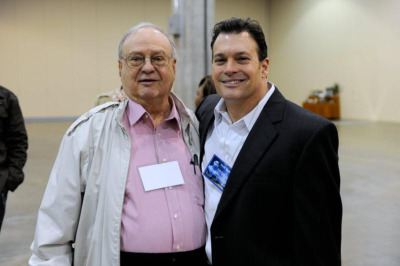
In an unprecedented development, the Boxing Writers Association of America has started a “watch list” to lift the curtain on ring officials who have “screwed up.” Veteran Texas referee Laurence Cole and Nebraska judges Mike Contreras and Jeff Sinnett have the unwelcome distinction of being the first “honorees.”
“Boxing is a sport where judges and referees are rarely held accountable for poor performances that unfairly change the course of a fighter’s career and, in some instances, endanger lives,” says the BWAA in a preamble to the new feature. Hence the watch list, which is designed to “call attention to ‘egregious’ errors in scoring by judges and unacceptable conduct by referees.”
Contreras and Sinnett, residents of Omaha, were singled out for their scorecards in the match between lightweights Thomas Mattice and Zhora Hamazaryan, an eight round contest staged at the WinnaVegas Casino in Sloan, Iowa on July 20. They both scored the fight 76-75 for Mattice, enabling the Ohio fighter to keep his undefeated record intact via a split decision.
Although Mattice vs. Hamazaryan was a supporting bout, it aired live on ShoBox. Analyst Steve Farhood, who was been with ShoBox since the inception of the series in 2001, called it one of the worst decisions he had ever seen. Lead announcer Barry Tompkins went further, calling it the worst decision he has seen in his 40 years of covering the sport.
Laurence Cole (pictured alongside his father) was singled out for his behavior as the third man in the ring for the fight between Regis Prograis and Juan Jose Velasco at the Lakefront Arena in New Orleans on July 14. The bout was televised live on ESPN.
In his rationale for calling out Cole, BWAA prexy Joseph Santoliquito leaned heavily on Thomas Hauser’s critique of Cole’s performance in The Sweet Science. “Velasco fought courageously and as well as he could,” noted Hauser. “But at the end of round seven he was a thoroughly beaten fighter.”
His chief second bullied him into coming out for another round. Forty-five seconds into round eight, after being knocked down for a third time, Velasco spit out his mouthpiece and indicated to Cole that he was finished. But Cole insisted that the match continue and then, after another knockdown that he ruled a slip, let it continue for another 35 seconds before Velasco’s corner mercifully threw in the towel.
Controversy has dogged Laurence Cole for well over a decade.
Cole was the third man in the ring for the Nov. 25, 2006 bout in Hildalgo, Texas, between Juan Manuel Marquez and Jimrex Jaca. In the fifth round, Marquez sustained a cut on his forehead from an accidental head butt. In round eight, another accidental head butt widened and deepened the gash. As Marquez was being examined by the ring doctor, Cole informed Marquez that he was ahead on the scorecards, volunteering this information while holding his hand over his HBO wireless mike. The inference was that Marquez was free to quit right then without tarnishing his record. (Marquez elected to continue and stopped Jaca in the next round.)
This was improper. For this indiscretion, Cole was prohibited from working a significant fight in Texas for the next six months.
More recently, Cole worked the 2014 fight between Vasyl Lomachenko and Orlando Salido at the San Antonio Alamodome. During the fight, Salido made a mockery of the Queensberry rules for which he received no point deductions and only one warning. Cole’s performance, said Matt McGrain, was “astonishingly bad,” an opinion echoed by many other boxing writers. And one could site numerous other incidents where Cole’s performance came under scrutiny.
Laurence Cole is the son of Richard “Dickie” Cole. The elder Cole, now 87 years old, served 21 years as head of the Texas Department of Combat Sports Regulation before stepping down on April 30, 2014. At various times during his tenure, Dickie Cole held high executive posts with the World Boxing Council and North American Boxing Federation. He was the first and only inductee into the inaugural class of the Texas Boxing Hall of Fame, an organization founded by El Paso promoter Lester Bedford in 2015.
From an administrative standpoint, boxing in Texas during the reign of Dickie Cole was frequently described in terms befitting a banana republic. Whenever there was a big fight in the Lone Star State, his son was the favorite to draw the coveted refereeing assignment.
Boxing is a sideline for Laurence Cole who runs an independent insurance agency in Dallas. By law in Texas (and in most other states), a boxing promoter must purchase insurance to cover medical costs in the event that one or more of the fighters on his show is seriously injured. Cole’s agency is purportedly in the top two nationally in writing these policies. Make of that what you will.
Complaints of ineptitude, says the WBAA, will be evaluated by a “rotating committee of select BWAA members and respected boxing experts.” In subsequent years, says the press release, the watch list will be published quarterly in the months of April, August, and December (must be the new math).
Check out more boxing news on video at The Boxing Channel
Canada and USA
In Boxing, the Last Weekend of July was Chock Full of Surprises
The first upset of last weekend occurred in an undercard bout on the big show at London’s O2 Arena. David Allen, a journeyman with a 13-4-2 record, knocked out previously undefeated
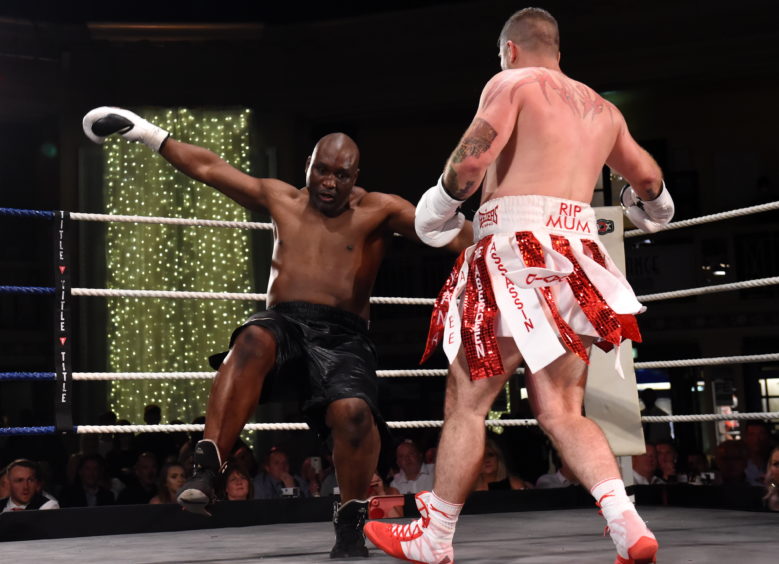
The first upset of last weekend occurred in an undercard bout on the big show at London’s O2 Arena. David Allen, a journeyman with a 13-4-2 record, knocked out previously undefeated Nick Webb (12-0, 10 KOs) in the fourth round. Allen said that he intended this to be his final fight, but will now hang around awhile.
In hindsight, this was an omen. Before the show was over, upsets – albeit mild upsets – were registered in both featured bouts. Dereck Chisora, trailing on the scorecards, stopped Carlos Takam in the eighth. Dillian Whyte outpointed Joseph Parker. And later that same day, in Kissimmee, Florida, Japanese import Masayuki Ito made a big splash in his U.S. debut, beating up highly touted Christopher Diaz.
– – – –
Joseph Parker is quite the gentleman. Following his loss to Dillian Whyte, Parker was gracious in defeat: “I say congratulations to Dillian. I gave it my best. The better man won.”
In case you missed it, Whyte survived a hoary moment in the final round to win a unanimous decision. Most everyone agreed that the decision was fair but there were a few dissenters. Well known U.K. boxing pundit Steve Bunce said, “I thought Parker deserved a draw.” Bunce noted that the scribes sitting near him were in complete accord that the most lopsided score (115-110) was far too wide.
We’ve seen fighters grouse that they were robbed after fights that were far less competitive. Parker’s post-fight amiability was all the more puzzling considering that he had a legitimate beef that referee Ian John Lewis was too lax, enabling Whyte to turn the contest into a street fight.
Parker’s trainer Kevin Barry was all on board with the selection of Lewis. “He’s a very highly qualified guy who I think is the best British referee,” he said. But Barry changed his tune after the fight, saying that there were at least two occasions when Lewis should have deducted a point from Whyte.
Veteran Australian boxing writer Anthony Cocks said that going forward, Parker, a soft spoken, mild mannered man, needs to have more of a mongrel in him. Cocks noted that when Whyte transgressed, Parker’s response was to look at the ref with a bemused expression. The first time that Whyte bent the rules, opined Cocks, Parker should have hit him in the balls.
– – – –
Top Rank hasn’t had much luck with their Puerto Rican fighters lately. First there was Felix Verdejo. Hyped as the next Felix Trinidad, the 2012 Olympian was 22-0 when his career was interrupted by a motorcycle accident. He won his first fight back in Puerto Rico, but was then exposed by Tijuana’s unheralded Antonio Lozada Jr. who stopped him in the 10th round at the Theater of Madison Square Garden on St. Patrick’s Day, 2018.
More recently, Top Rank gave a big build-up to Christopher Diaz, but Diaz, the 2016 ESPN Deportes Prospect of The Year, also hit the skids after starting his pro career 23-0. Diaz was upset on Saturday by Masayuki Ito in a match sanctioned for the vacant WBO 130-pound title.
Unlike Verdejo, Diaz was still standing at the final bell, but he was taken to the cleaners by his Japanese opponent who won comfortably on the scorecards.
– – – –
Russia’s Vladimir Nikitin made his pro debut on the Diaz-Ito undercard. Nikitin won every round of a 6-round contest.
If the name sounds vaguely familiar, this is the guy who defeated top seed Michael Conlan in a quarterfinal bantamweight match at the Rio Olympics. The decision, which Conlan greeted with a middle finger salute to the judges, was widely seen as a heist.
In signing new prospects, Top Rank honcho Bob Arum likes to gather up fighters who compete in the same weight class as fighters that he already controls. This sets up a scenario where he can double dip, extracting a commission from the purse of both principals.
The cluster is most pronounced in the lower weight classes. These fighters, listed alphabetically, are currently promoted or co-promoted by Top Rank: junior bantamweight Jerwin Ancajas (31-1-1), junior featherweight Michael Conlan (8-0), featherweight Christopher Diaz (23-1), super bantamweight Isaac Dogboe (19-0), super bantamweight Jessie Magdaleno (25-1), super bantamweight Jean Rivera (14-0), featherweight Genesis Servania (31-1), bantamweight Shakur Stevenson (7-0), bantamweight Antonio Vargas (7-0), featherweight Nicholas Walters (26-1-1).
The aforementioned Nikitin launched his pro career as a featherweight.
– – – –
In July of 2004, Danny Williams knocked out Mike Tyson in the fourth round at Louisville. Iron Mike had one more fight and then wisely called it quits. Williams had 48 more fights, the most recent coming last weekend in Aberdeen, Scotland.
Williams was stopped in the 10th round by a local man, 35-year-old Lee McAllister, whose last documented fight had come in 2013. In that bout, McAllister, carrying 140 pounds, outpointed a Slovakian slug in a 6-round fight. During his hiatus from boxing, McAllister (that’s him in the red and white trunks), served a 9-month prison sentence for assaulting a patron while working in an Aberdeen kebab shop.
Danny Williams’ weight wasn’t announced, but in his three fights prior to fighting McAllister he came in a tad north of 270 pounds. He reportedly out-weighed McAllister by 4 stone (56 pounds), likely a loose approximation.
Williams is a product of Brixton, the hardscrabble Afro-Caribbean neighborhood in South London that also spawned Dillian Whyte. But he has no intention of going back there. After the McAllister fight, in which he was knocked down three times, he said he was retiring to Nigeria where he had a job waiting for him as a bodyguard.
– – – –
The ink was barely dry on the weekend’s events when news arrived that Tyson Fury was close to signing for a December bout with WBC heavyweight titlist Deontay Wilder. On social media, Fury said the deal was almost done and Fury’s promoter Frank Warren confirmed it while saying that it was conditional on Fury looking good when he opposes Francesco Pianeta on Aug. 18 at the Windsor Park soccer stadium in Belfast. Fury vs. Pianeta underpins Carl Frampton’s WBO featherweight title defense against Luke Jackson.
As to whether he would be ready to defeat Wilder after only two comeback fights, Fury, who turns 30 this month, said he was ready to beat Wilder on the day he was born.
Deontay Wilder is disappointed that his dream match with Anthony Joshua won’t happen until next spring at the earliest, but there are plenty of options out there for him and more of them for him to ponder after this past weekend’s events.
Cuban southpaw Luis Ortiz looked good against Razvan Cojanu, dismissing his hapless Romanian adversary in the second round on the Garcia-Easter card in Los Angeles.
After the bout, WBC prexy Mauricio Suliaman gave Wilder his blessing to skirt his mandatory against Dominic Breazeale for a rematch with Ortiz.
Presumably that also applies if Wilder accepts promoter Eddie Hearn’s offer for a match with Dillian Whyte. The WBC now lists Whyte as their “silver” champion and has bumped him ahead of Breazeale into the #1 slot in their rankings. And then there’s Jarrell “Big Baby” Miller who has an Eddie Hearn connection and is a more interesting opponent than Breazeale.
If Wilder vs. Fury is a go, say Fury and Warren, it will be held in December in New York or Las Vegas. We make New York the favorite. The only good date in Las Vegas in December for an event of this magnitude is Dec. 1 and that’s only because Thanksgiving arrives early this year. The National Finals Rodeo, a 10-day event which fills up the town, arrives on Dec. 6, eliminating the next two weekends. And when the rodeo leaves, Christmas is right around the corner. Historically, boxing promoters shy away from putting on a big show right before Christmas on the theory that fight fans have the “shorts,” having exhausted their discretionary income on Christmas gifts.
There are some interesting fighters competing in the upper tier of the heavyweight division and a slew of intriguing prospects coming up the ladder. The division hasn’t been this exciting since the Golden Age of Ali, Frazier, Foreman, et al. Enjoy.
Check out more boxing news on video at The Boxing Channel
Asia & Oceania
Les Moonves, Hero of Mayweather-Pacquiao Deal, Now Cast as a Villain
“He refused to take ‘no’ for an answer.”
That comment, offered in praise of Les Moonves for the pivotal role the chairman and CEO of CBS Corporation played in helping make the May 2, 2015, megafight pairing
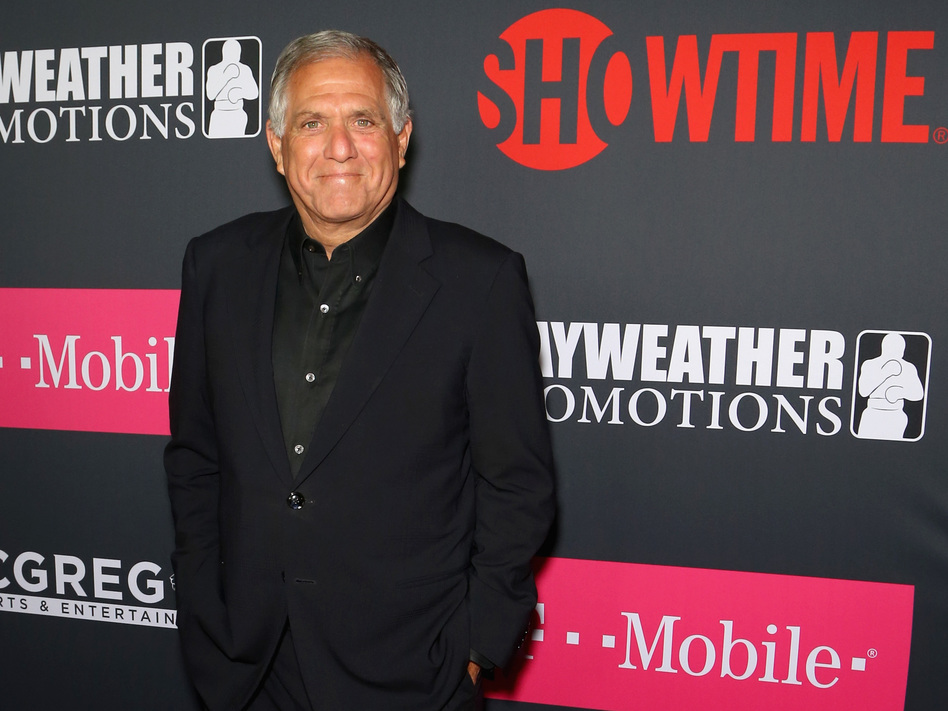
“He refused to take ‘no’ for an answer.”
That comment, offered in praise of Les Moonves for the pivotal role the chairman and CEO of CBS Corporation played in helping make the May 2, 2015, megafight pairing Floyd Mayweather Jr. and Manny Pacquiao, has taken on a more sordid connotation in light of the avalanche of accusations of sexual impropriety that have thrust the 68-year-old Moonves into the unwelcome company of such accused high-visibility miscreants as Bill Cosby, Harvey Weinstein, Charlie Rose, Bill O’Reilly and Matt Lauer.
But while the other aforementioned power players have been fired or indicted, their reputations in tatters, Moonves remains on the job as one of the most influential and highest paid (a reported $70 million in 2017) media executives in the United States. Despite a damning article authored by Ronan Farrow in The New Yorker that details numerous instances of bad behavior ranging from merely dubious to criminally actionable, and to which Moonves himself has admitted to some extent, CBS on Monday issued a statement of support that seemed to catch the editors of Variety somewhat off-guard. The entertainment publication’s opening paragraph reads thusly: “In a surprise move, CBS’ board of directors is keeping Leslie Moonves as chairman-CEO even as it launches a probe of sexual assault allegations leveled against him by six women in a New Yorker expose.”
Why should still another story of alleged sexual misconduct by an older man seeking to exert improper control over younger women be of any significance to a fight audience? Well, normally it wouldn’t, except for Moonves’ position, which includes a say in the direction of Showtime’s increasingly important boxing operation if he so chooses. When negotiations for Mayweather-Pacquiao, a pay-per-view event which was to be co-produced by Showtime and HBO, hit a snag, Moonves insinuated himself into the discussion because it made financial and logistic sense for him to do so. CBS/Showtime had entered into a six-bout, $250 million deal with Mayweather, and three of the four fights held to that point had underperformed. Subsequently, the prevailing belief in CBS/Showtime’s executive offices was that Mayweather’s long-delayed showdown with Pacquiao was not only advisable, but absolutely necessary to stanch the flow of red ink.
“Without Les Moonves, this fight wouldn’t have had a prayer of happening,” Top Rank chairman and CEO Bob Arum, a longtime friend of Moonves, said after the last “i” had been dotted and the last “t” crossed. “The real hero in getting this done is Les Moonves.”
And this from Stephen Espinoza, Showtime Sports’ executive vice president and general manager, tossing another verbal bouquet to his boss: “One of the main reasons this deal got done, when maybe other ones didn’t, was having Les Moonves as part of the process. He was deeply committed to making this deal. He is someone that all parties in this negotiation respected. He was really the catalyst for seeing this through. He refused to take `no’ for an answer from any side. He was there making sure that the parties came together in a successful and cooperative manner.”
But while the high-level wheeling and dealing to finalize Mayweather-Pacquiao was done behind closed doors, so too were those instances when Moonves was attempting to arrange a private deal with a female subordinate whose career he could either advance or stymie. One such occasion allegedly involved writer-actress Ileana Douglas, who was summoned to Moonves’ office to discuss matters involving a television project in which she was to have starred. The New Yorker story quotes Douglas’ heightening discomfort as Moonves made coarse and physical advances toward her.
“At that point, you’re a trapped animal,” Douglas said of the incident. “Your life is flashing before your eyes. It has stayed with me the rest of my life, that terror.”
After The New Yorker story came out, Moonves apologized, sort of, to the six women who told Farrow that the CBS bigwig had sexually harassed them. All claimed he became cold and hostile after they rejected his advances, and that they believed their careers suffered as a result.
In a statement, Moonves said, “Throughout my time at CBS, we have promoted a culture of respect and opportunity for all employees, and have consistently found success elevating women to top executive positions across our company. I recognize that there were times decades ago when I may have made some women uncomfortable by making advances. Those were mistakes and I regret them immensely. But I always understood and respected – and abided by the principle – that `no’ means `no,’ and I have never misused my position to harm or hinder anyone’s career … We at CBS are committed to being part of the solution.”
What makes the furor that has suddenly swirled up around Moonves all the more curious is his prominent support for the #MeToo movement and other feminist causes. In December, he helped found the Commission on Eliminating Sexual Harassment and Advancing Equality in the Workplace. A month prior to that, at a conference in November, he said, “I think it’s important that a company’s culture will not allow for (sexual harassment). And that’s the thing that’s far-reaching. There’s a lot we’re learning. There’s a lot we didn’t know.”
There’s a lot we didn’t know? Oh, for sure. We didn’t know for a very long time that TV’s favorite father figure, now-81-year-old Bill Cosby, would be classified as a sexually violent predator by a Pennsylvania court. Cosby is due to be sentenced Sept. 24 on three counts of aggravated indecent assault, and his alma mater, Temple University, rescinded the honorary Ph.D. it conferred upon him in 1991. The Cos resigned his spot on Temple’s Board of Trustees in 2014, after 32 years, amid accusations that he sexually assaulted dozens of women over decades.
We also didn’t know that Harvey Weinstein, 66, the co-founder of Miramax, would be dismissed from the company and be expelled from the Academy of Motion Picture Arts and Sciences after the New York Times ran a story on Oct, 5, 2017, detailing decades of allegations against him by over 80 women. It would seem that the most important piece of furniture in Weinstein’s office was not his desk, but the proverbial casting couch.
One of the more intriguing developments in the widening scandal involved TV newsmen Bill O’Reilly and Matt Lauer. In September 2017, O’Reilly, fired by Fox News for a series of alleged sexual improprieties, appeared as a guest on NBC’s Today show, where he told host Matt Lauer that his dismissal was “a hit job – a political and financial hit job.” Two months later, Lauer was canned by NBCUniversal after it was found he had an inappropriate sexual relationship with another much more junior NBC employee. Three additional women subsequently made complaints against Lauer.
Boxing is a physical sport, maybe the most physical there is, and in most cases the transgressions committed were by fighters who resorted to brute force, the fastest way to bring cops and attorneys into the equation. Think Tony Ayala Jr. spending 17 years behind bars for rape, a conviction that came on the heels of a previous incident in which he broke a teenage girl’s jaw after he made unwanted advances toward her in the restroom of a drive-in theater. But it might be argued that those who seek to have their way with women by exercising a different kind of power are just as much or even more reprehensible, an affront not only to the females they view as disposable objects but to any man who would not want to see his mother, wife or daughter treated so shabbily.
According to CBS, there have been no misconduct claims and no settlements against Moonves during his 24 years at the network. He deserves, as everyone does under the American system of jurisprudence, the presumption of innocence. But given the current landscape befouled by others who apparently felt that they could do whatever they wanted because they always had gotten away with it, sticking with the status quo might send the wrong message.
Check out more boxing news on video at The Boxing Channel
-
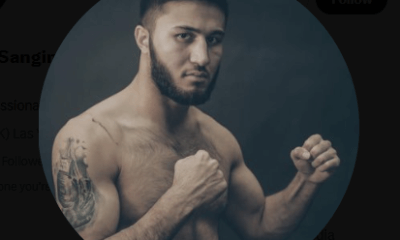
 Featured Articles4 weeks ago
Featured Articles4 weeks agoMekhrubon Sanginov, whose Heroism Nearly Proved Fatal, Returns on Saturday
-
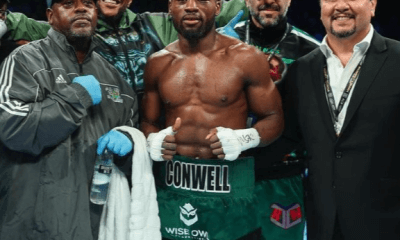
 Featured Articles3 weeks ago
Featured Articles3 weeks agoAvila Perspective, Chap. 322: Super Welterweight Week in SoCal
-
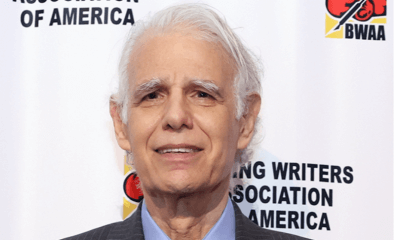
 Featured Articles4 weeks ago
Featured Articles4 weeks agoTSS Salutes Thomas Hauser and his Bernie Award Cohorts
-
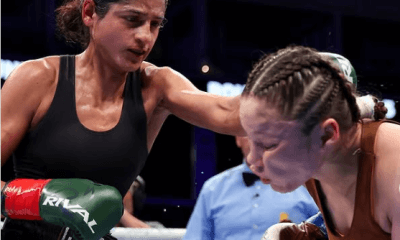
 Featured Articles3 weeks ago
Featured Articles3 weeks agoGabriela Fundora KOs Marilyn Badillo and Perez Upsets Conwell in Oceanside
-
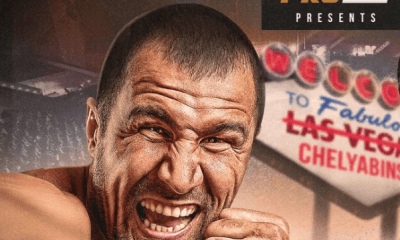
 Featured Articles3 weeks ago
Featured Articles3 weeks ago‘Krusher’ Kovalev Exits on a Winning Note: TKOs Artur Mann in his ‘Farewell Fight’
-

 Featured Articles3 weeks ago
Featured Articles3 weeks agoFloyd Mayweather has Another Phenom and his name is Curmel Moton
-
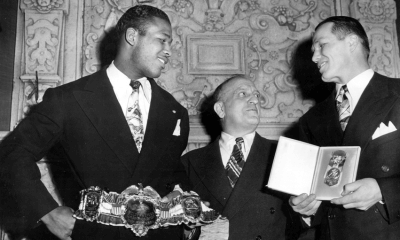
 Featured Articles3 weeks ago
Featured Articles3 weeks agoArne’s Almanac: The First Boxing Writers Assoc. of America Dinner Was Quite the Shindig
-
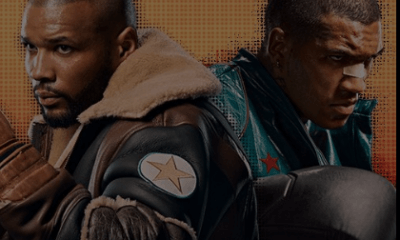
 Featured Articles3 weeks ago
Featured Articles3 weeks agoAvila Perspective, Chap. 323: Benn vs Eubank Family Feud and More















